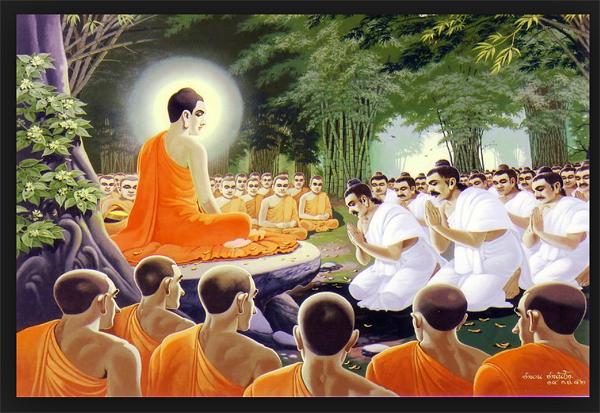Eko Care:
… the truth that EBT philosophy doesn’t have any stable base but an evolving collection of observations.
As a response to the above post on another forum,
I found a nice post from a venerable.
A. Bhikku:
I agree. The confusion resulting from that, I observed, can be significant, with the wildest interpretations. The following is mostly based upon personal experience. Some doubt almost anything, some suggest to just regard the Dīghanikāya as authoritative, some even only the Aṭṭhakavagga . In the end, I believe, the modern-day Suttantikas comprise simply another sect which holds to a certain interpretation of what is Buddhavacana and how to understand it. But they don’t see it that way of course; they think they are quite right and in a special position of knowing what the Buddha actually said. They say the same about us of course … And so the quarrel continues probably until the end of the sāsana .
We are lucky to see the value in a tradition that has lasted in its present form possibly since the time of the Buddha himself and his aggasāvakas , containing all these deep insights by the great Theras of old into the teachings of the Buddha that are contained in the commentaries. Hence "Theravāda ", the doctrine of the elders. Today it is the interpretation of this scholar or that, and if it doesn’t appeal, well, just make up your own interpretation that you like and makes sense to you (sometimes only you). As Theravādins, we have a wealth of explanations at our disposal, dozens and dozens of books, millennia of tradition, I rather go with that in most cases.
But today, we often find the following scenario: This vinaya rule is offensive and misogynistic, well, let’s drop it (well, just let’s get rid of the whole Word Commentary, not even knowing if it is from the Buddha or Upāli). That discourse tastes too much like Abhidhamma , well, it’s probably late. Well, we, as Theravādins, don’t do such things; we leave things as they are, even if it costs something at times. This is one of our greatest strengths and a hallmark of ours. As far as I am concerned, I better go with that and with the Thera’s of old rather than this confused state of affairs nowadays, often breeding disrespect or even outright animosity for the ancient communities (again speaking from personal experience), even going so far as calling them power hungry and/or misogynistic. Saṅghānussati looks different to me … How inclusive is that?
In any case, we also need to grant them that they still can attain to magga-phala even when just following the Dīghanikāya without commentary as much as they need to grant us that we are also able to attain just the same following the commentaries and the Abhidhamma. The Theravāda , we must remember, already stood the test of time, having surely produced plenty of arahants along the way. Everyone needs to decide for him- or herself …
https://independent.academia.edu/ABhikkhu
https://www.embracing-buddhism.jimdo.com
